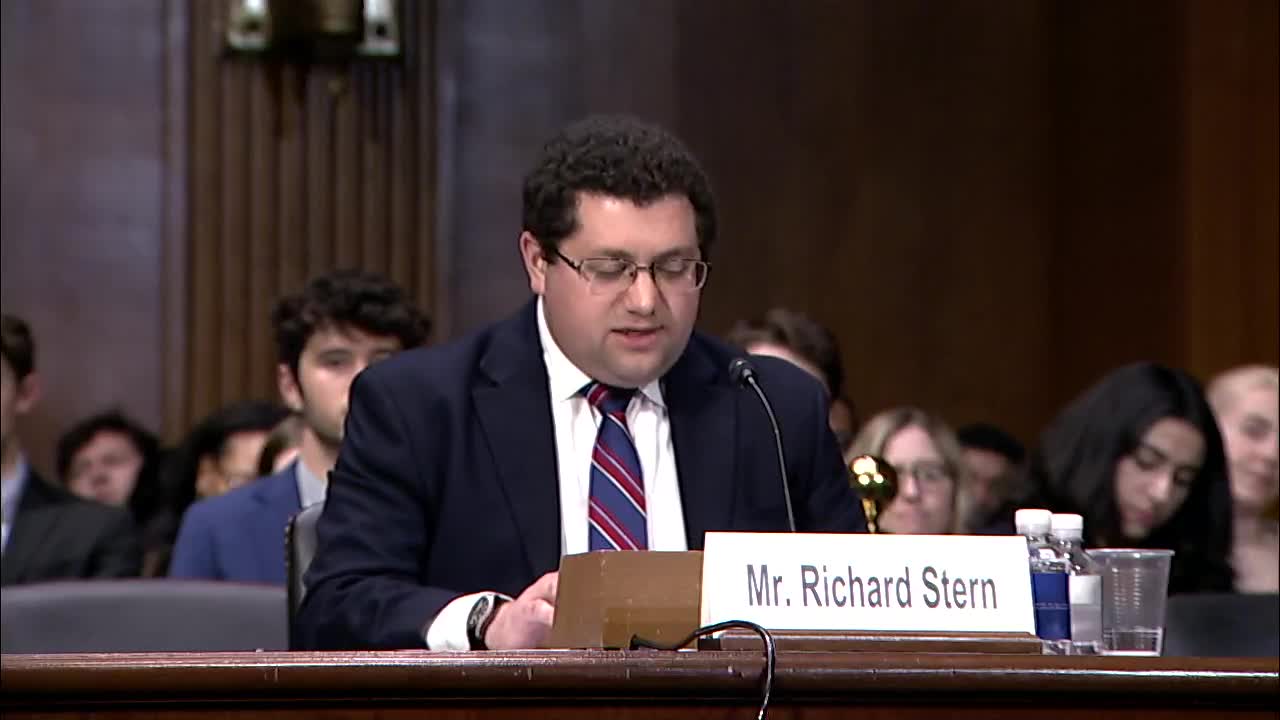Government's Role in Economic Decline Exposed
June 05, 2024 | Judiciary: Senate Committee, Standing Committees - House & Senate, Congressional Hearings Compilation

This article was created by AI summarizing key points discussed. AI makes mistakes, so for full details and context, please refer to the video of the full meeting. Please report any errors so we can fix them. Report an error »

In a recent government meeting, discussions centered on the impact of government policies on competition and economic growth, highlighting concerns over regulatory practices and their implications for small businesses. A key speaker criticized the notion that large market shares, such as those held by companies like Walmart, provide immunity from competition, arguing instead that technological advancements have reshaped consumer choices and market dynamics.
The speaker emphasized the need for humility in government intervention, warning that excessive regulation can stifle innovation and economic resilience. They pointed to the historical context of companies like Blockbuster, which failed to adapt to changing technologies, as a cautionary tale against relying on government support to protect established businesses.
Concerns were raised about the punitive nature of the U.S. tax system prior to the Tax Cuts and Jobs Act, which the speaker claimed had hindered investment and contributed to a significant decline in the dollar's value. They noted that federal spending has added substantial costs to homeownership and limited opportunities for aspiring entrepreneurs, with estimates suggesting a loss of $53,000 per household in income and quality of life due to regulatory burdens.
The discussion underscored the challenges faced by small and innovative businesses, which often lack the resources available to larger corporations. The speaker called for a reevaluation of government practices, labeling the government itself as a significant monopolistic force that could be undermining competition rather than fostering it.
As the meeting progressed, Senator Cory Booker joined the discussion, indicating a broader engagement with the issues raised. The dialogue reflects ongoing concerns about the balance between regulation and innovation in the American economy, as stakeholders seek to navigate the complexities of competition in a rapidly evolving market landscape.
The speaker emphasized the need for humility in government intervention, warning that excessive regulation can stifle innovation and economic resilience. They pointed to the historical context of companies like Blockbuster, which failed to adapt to changing technologies, as a cautionary tale against relying on government support to protect established businesses.
Concerns were raised about the punitive nature of the U.S. tax system prior to the Tax Cuts and Jobs Act, which the speaker claimed had hindered investment and contributed to a significant decline in the dollar's value. They noted that federal spending has added substantial costs to homeownership and limited opportunities for aspiring entrepreneurs, with estimates suggesting a loss of $53,000 per household in income and quality of life due to regulatory burdens.
The discussion underscored the challenges faced by small and innovative businesses, which often lack the resources available to larger corporations. The speaker called for a reevaluation of government practices, labeling the government itself as a significant monopolistic force that could be undermining competition rather than fostering it.
As the meeting progressed, Senator Cory Booker joined the discussion, indicating a broader engagement with the issues raised. The dialogue reflects ongoing concerns about the balance between regulation and innovation in the American economy, as stakeholders seek to navigate the complexities of competition in a rapidly evolving market landscape.
View full meeting
This article is based on a recent meeting—watch the full video and explore the complete transcript for deeper insights into the discussion.
View full meeting